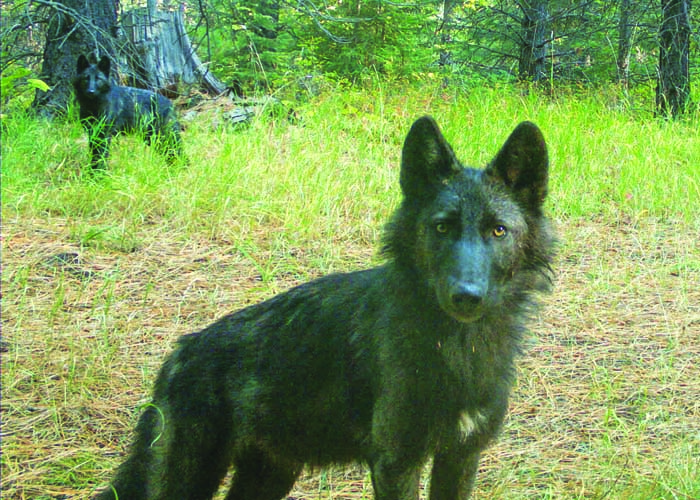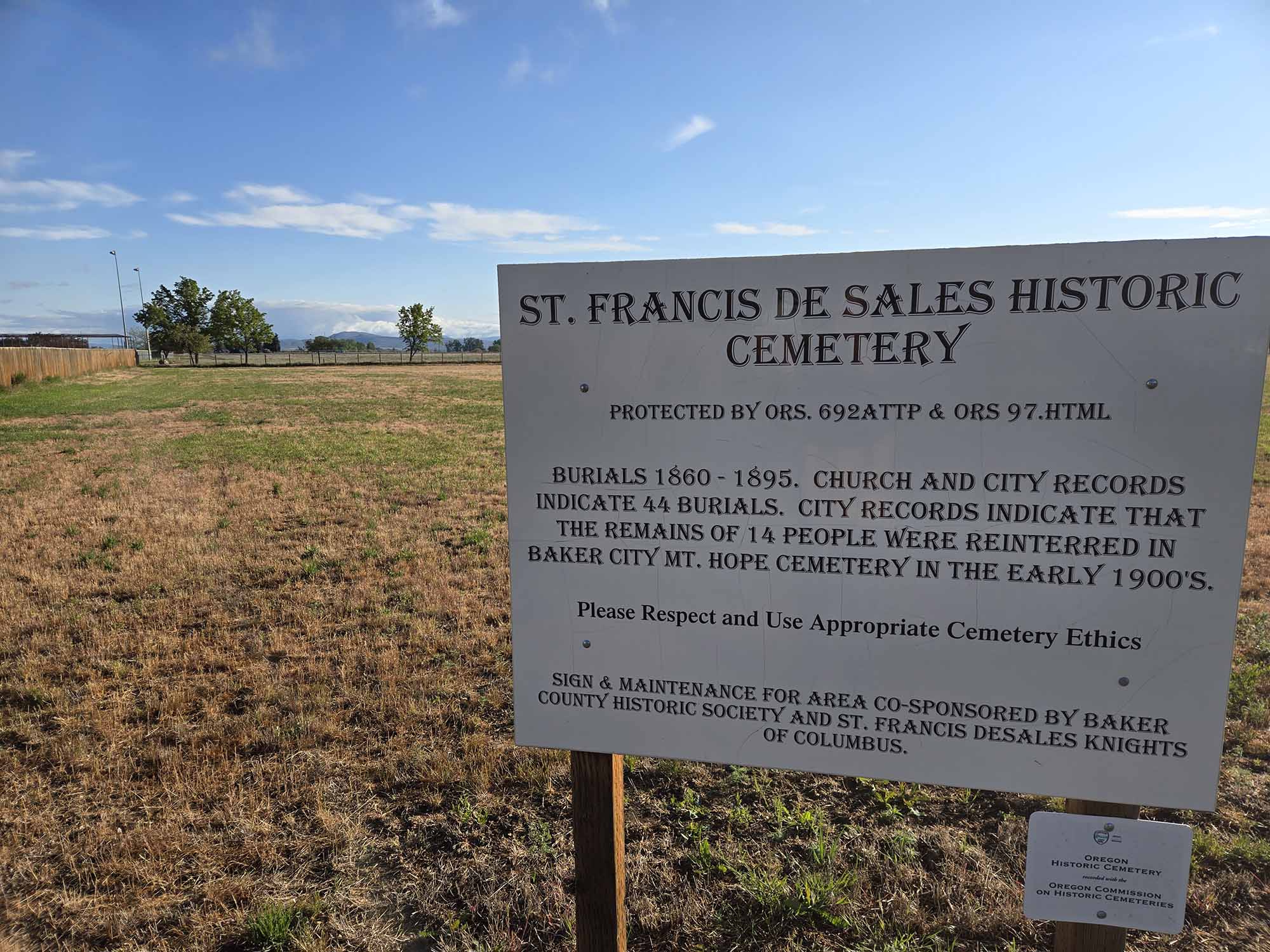ODFW issues warning after wolves, eagles, dogs poisoned in Wallowa County
Published 9:37 am Friday, May 17, 2024

- A remote camera captured an image of two 5-month-old juvenile wolves of the Wenaha Pack on Forest Service lands in northern Wallowa County in September 2020.
Federal and Oregon law enforcement are investigating a case in which three wolves, two golden eagles, a cougar and a coyote were killed by poison in Wallowa County earlier this year.
Trending
The U.S. Fish and Wildlife Service, which is offering a $25,000 reward for information that leads to an arrest, criminal conviction or civil penalty assessment, is investigating with the Oregon State Police in cooperation with the Oregon Department of Fish and Wildlife.
The agencies announced on Thursday, May 16, that in February and March, OSP wildlife troopers found carcasses of the wolves, eagles, cougar and coyote in the Lightning Creek drainage, a tributary to the Imnaha River near the Idaho border.
The area, about 11 miles northeast of Imnaha, is in an area of known wolf activity, as defined by ODFW.
Trending
The wolves killed include the breeding male and female from the South Snake Pack, and a juvenile wolf.
ODFW officials believe a cow carcass was laced with poison to target wolves.
A total of 19 wolves have died from poisoning in Oregon since 2015, according to the agency.
In addition to wildlife, OSP reported that poison has killed at least one domestic dog, about nine miles north of Enterprise in April. Another possible poisoning of a dog was investigated six miles north of Imnaha.
The series of poisonings prompted ODFW to warn hunters, wildlife watchers, mushroom pickers and others to be careful this spring and summer. The agency recommends:
• Keep your dogs on a leash and under control. Don’t let them eat anything they find in the forest.
• Learn what to carry to induce vomiting in your dog before venturing out — ask your veterinarian for advice. If you suspect that your pet may have been poisoned, visit a veterinarian immediately.
• Watch for dead birds or mammals (scavengers) which can indicate poison.
• Know what a poisoned carcass looks like. This may be tricky to spot but watch for substances on the carcass that seem unnatural (powders or strange colors).
• Be on the lookout for suspicious bait. An unnatural item in the woods such as a meat ball or piece of steak could be an indicator that someone is trying to poison wildlife in the area.
• Don’t approach anyone who you suspect of poisoning. Get some details such as license plate, description of vehicle and persons, date, and time of the incident.
ODFW describes poisoning investigation
Agency employees donned Tyvek suits and respirators while removing a poisoned cow carcass in Wallowa County, according to a press release.
The incident started on Feb. 3, when a tracking collar on a wolf in the Hells Canyon National Recreation gave a mortality alert, meaning the collar hadn’t moved for a significant amount of time.
ODFW employees took a flight over the area and confirmed that the South Snake Pack’s breeding female wolf was dead. Employees later found the pack’s breeding male and the third wolf.
After searching, employees found the poison-laced cow carcass.
Over the next several weeks, ODFW and OSP employees found additional deal animals, including the two golden eagles, cougar and coyote, as well as a Stellar’s jay and black-billed magpie, both next to the cow carcass.
ODFW coordinated with the Department of Environmental Quality (DEQ) to develop a plan to extract the carcass while protecting the health of staff.
“The safety of ODFW staff is our top priority, and we thank DEQ for their guidance that helped us get this poison off the landscape for the safety of wildlife, in a way that didn’t jeopardize the health of our staff,” said Bernadette Graham-Hudson, ODFW wildlife division administrator.
Dressed in hazmat gear, ODFW staff moved the carcass onto a tarp and then into a net. The carcass was removed by helicopter, then driven to a landfill near Arlington.
“Northeast Oregon is known for its natural resources and outdoor opportunities, so it’s just terrible to have this going on,” Graham-Hudson said. “We hope whoever is poisoning wildlife is quickly caught and punished for the safety of people, wildlife, and pets in Northeast Oregon.”
Poisoning a wolf is a Class C Felony in Oregon, punishable by up to a $125,000 fine and up to five years in prison, subject to the sentencing guidelines (ORS 161.625 and 161.605). Poaching federally protected wildlife such as golden eagles, or poaching multiple animals, also elevates the crime from a misdemeanor to a felony, according to new sentencing guidelines passed by the Oregon State Legislature in 2019.








